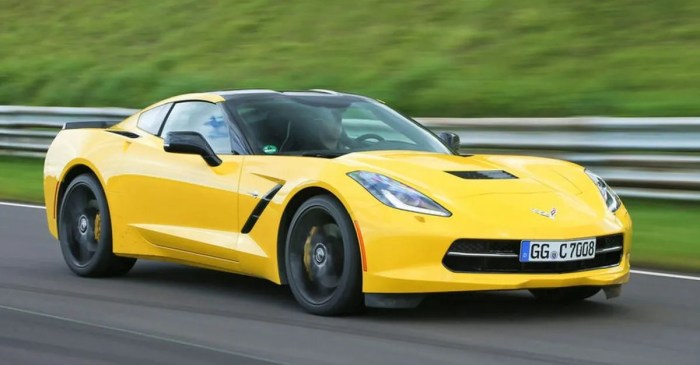Most reliable sports cars have earned their reputation through a combination of engineering excellence and consistent performance. As the automotive landscape evolves, the importance of reliability in sports cars becomes increasingly evident, with many manufacturers striving to meet the demands of enthusiasts who seek both speed and dependability. The journey of sports car reliability has seen notable shifts over the years, shaped by advancements in technology and engineering practices that prioritize durability alongside exhilarating driving experiences.
Understanding what makes a sports car reliable involves delving into the engineering elements that contribute to its performance, the significance of regular maintenance, and the impact of driving conditions. By examining these factors along with the history of top manufacturers known for their reliability, we can better appreciate the nuances that define a truly dependable sports car.
Overview of Reliable Sports Cars
The world of sports cars is often perceived through the lens of performance and design, but reliability is an equally crucial aspect that enthusiasts should consider. Reliable sports cars are those that not only deliver exhilarating speeds and sleek aesthetics but also exhibit durability and consistent performance over time. As technology has advanced, the reliability of sports cars has also evolved, leading to notable trends in the industry. Manufacturers such as Porsche, Toyota, and Honda have built strong reputations for producing sports cars that combine thrilling driving experiences with dependable engineering.
Characteristics of Reliability in Sports Cars, Most reliable sports cars
Reliability in sports cars is primarily defined by their durability, the frequency of mechanical failures, and the overall maintenance costs over the vehicle’s lifespan. Key characteristics include:
- Robust Engineering: This includes high-quality materials and advanced engineering techniques that enhance performance and longevity.
- Low Maintenance Needs: Reliable sports cars require less frequent repairs and are often easier to maintain.
- Consistent Performance: They should perform well under various conditions without significant degradation over time.
Trends in Sports Car Reliability
Over the years, the reliability of sports cars has improved dramatically thanks to innovations in technology and manufacturing processes. In the past, many cars were notorious for mechanical failures and high maintenance costs. However, modern sports cars now utilize advanced materials, electronic systems, and rigorous testing protocols to enhance their reliability. Notable manufacturers recognized for producing reliable sports cars include Porsche, Toyota, Subaru, and Mazda, all of which have consistently received high marks for durability and performance.
Top Manufacturers for Reliable Sports Cars
The following manufacturers are known for their commitment to reliability in sports cars:
- Porsche: Renowned for their engineering excellence and a strong track record in reliability.
- Toyota: Offers models like the Toyota 86, which blend sportiness with dependability.
- Subaru: Known for its all-wheel-drive systems and robust performance in various driving conditions.
Key Factors Influencing Reliability
Several engineering elements contribute significantly to the reliability of sports cars. Modern designs incorporate advanced materials and technologies that improve both performance and longevity.
Engineering Elements Contributing to Reliability
The engineering of a sports car plays a pivotal role in its reliability. Factors that enhance durability include:
- High-Quality Components: Use of premium materials that withstand stress and wear.
- Advanced Suspension Systems: Designed to handle dynamic driving conditions while minimizing wear.
- Efficient Engine Management: Modern engines equipped with sophisticated management systems ensure optimal performance and fuel efficiency, reducing strain on components.
Importance of Regular Maintenance
Regular maintenance is crucial for enhancing the reliability of sports cars. Adhering to a scheduled maintenance plan helps to identify potential issues before they escalate, ensuring peak performance. Key maintenance practices include:
- Routine Oil Changes: Essential for engine longevity and performance.
- Tire Inspections: Regular checks can prevent blowouts and improve handling.
- Brake System Checks: Ensures safety and optimal performance under high-speed conditions.
Driving Conditions and Reliability

Driving conditions significantly influence the reliability of sports cars. Factors such as road quality, weather conditions, and driving style all play a role.
- Pavement Conditions: Poor road surfaces can accelerate wear on suspension components.
- Weather Conditions: Extreme temperatures and precipitation can impact performance and reliability.
- Driving Habits: Aggressive driving or frequent short trips can strain mechanical components.
Comparison of Popular Models: Most Reliable Sports Cars
A detailed comparison of popular sports car models can provide insights into their specifications and reliability ratings. Below is a table comparing some top sports cars:
| Model | Engine | Horsepower | Reliability Rating |
|---|---|---|---|
| Porsche 911 | 3.0L Turbocharged Flat-Six | 379 hp | 9.5/10 |
| Toyota 86 | 2.4L Flat-Four | 228 hp | 9.0/10 |
| Subaru BRZ | 2.4L Flat-Four | 228 hp | 8.8/10 |
Pros and Cons of Each Model
Each sports car model has its strengths and weaknesses regarding reliability.
- Porsche 911:
- Pros: Exceptional engineering, high resale value.
- Cons: Higher maintenance costs.
- Toyota 86:
- Pros: Affordable, excellent handling, low maintenance.
- Cons: Less powerful than competitors.
- Subaru BRZ:
- Pros: Engaging driving experience, good safety ratings.
- Cons: Limited interior space and cargo capacity.
User Testimonials on Reliability
User experiences often provide valuable insights into the reliability of sports cars. Many owners of the Porsche 911 report minimal issues over years of ownership, often praising its consistent performance. Meanwhile, Toyota 86 owners frequently highlight its low maintenance costs and reliability, making it an ideal choice for enthusiasts seeking dependability without sacrificing excitement.
Maintenance Practices for Sports Cars
Proper maintenance is essential for keeping sports cars in peak condition.
Best Practices for Maintaining Reliability
To enhance the reliability of sports cars over time, owners should adhere to best practices, including:
- Regular Professional Inspections: Schedule yearly check-ups with a trusted mechanic experienced in sports car maintenance.
- Use Quality Parts: Always opt for OEM or high-quality aftermarket parts for repairs and replacements.
- Track Usage: Maintain a log of usage to monitor performance trends and identify potential issues early.
Common Maintenance Pitfalls
While maintaining a sports car, it’s essential to avoid common pitfalls that can lead to reliability issues:
- Neglecting Fluid Changes: Skipping engine oil and coolant changes can lead to severe engine damage.
- Ignoring Warning Lights: Dashboard warning lights indicate potential issues that need immediate attention.
- Underestimating Tire Care: Failing to maintain proper tire pressure can affect handling and lead to premature tire wear.
Checklist for Regular Inspections
A maintenance checklist can help ensure that sports cars remain reliable. Key inspection points include:
- Oil level and condition
- Tire pressure and tread depth
- Brake fluid level
- Battery condition and terminal connections
- Fluid leaks under the vehicle
Impact of Technology on Reliability
Modern technology has significantly enhanced the reliability of sports cars.
Technological Improvements in Reliability
Advancements in technology have revolutionized the automotive industry, leading to enhanced reliability in sports cars:
- Engine Management Systems: Modern engines utilize sophisticated software to optimize performance and efficiency.
- Advanced Sensors: Sensors monitor critical systems, providing real-time data to prevent failures.
- Predictive Maintenance: Some manufacturers now offer software that alerts owners to maintenance needs before issues arise.
Role of Software and Electronics
The integration of electronics in sports cars plays a vital role in maintaining reliability. Such systems manage everything from performance tuning to safety features, helping to keep the vehicle running smoothly. Innovations such as adaptive suspension systems adjust to driving conditions in real-time, enhancing both performance and reliability.
Innovations Enhancing Reliability
Several notable innovations have emerged that improve reliability in sports cars, including:
- Hybrid Powertrains: Combining electric and gasoline engines can enhance efficiency and reduce wear on components.
- Improved Materials: The use of lightweight yet durable materials reduces strain on the vehicle, enhancing longevity.
- Data Analytics: Manufacturers now utilize data from vehicles to predict failures and improve future models.
Real-World Reliability Ratings

Reliability ratings from reputable automotive sources provide valuable insights into the performance of sports cars.
Reliability Ratings from Automotive Sources
The following table summarizes reliability ratings from trusted automotive sources, offering a glimpse into how various models fare in real-world scenarios:
| Model | Reliability Rating (Source) |
|---|---|
| Porsche 911 | 9.5/10 (Consumer Reports) |
| Toyota 86 | 9.0/10 (J.D. Power) |
| Subaru BRZ | 8.8/10 (Edmunds) |
Methodologies for Assessing Reliability
Reputable sources assess reliability using methodologies that often include owner surveys, mechanical inspections, and long-term performance studies. These assessments provide a comprehensive view of how well a vehicle performs over time, considering both subjective owner experiences and objective technical evaluations.
Comparison of Traditional vs. Electric Sports Cars
The reliability ratings of traditional sports cars are often compared to their electric counterparts. Electric sports cars tend to have fewer moving parts, potentially reducing the likelihood of mechanical failures. However, battery longevity and software reliability become new areas of focus for these vehicles.
- Traditional Sports Cars: High-performance engines and complex mechanical systems, often rated highly for reliability.
- Electric Sports Cars: Generally lower mechanical failure rates but depend heavily on battery technology and electronic systems.
Community Insights and Experiences
The sports car community plays a vital role in sharing experiences related to reliability.
Anecdotes from Sports Car Owners

Owner anecdotes provide a wealth of information about the reliability of various sports car models. Many enthusiasts share stories of long-term ownership where their vehicles have exceeded expectations in terms of reliability. These personal accounts often shed light on the real-world performance of each model.
The Role of Online Forums
Online forums and communities are invaluable for sports car enthusiasts seeking support and information regarding reliability. These platforms facilitate discussions about common issues, maintenance tips, and personal experiences, fostering a sense of camaraderie among owners.
Recommended Communities for Reliability Discussions
Enthusiasts interested in reliability discussions can join various online communities, including:
- Porsche Club of America
- Toyota 86 Forum
- Subaru BRZ Forum
Summary
In conclusion, the realm of reliable sports cars offers a captivating blend of power, precision, and peace of mind for drivers. By considering key factors such as maintenance practices, technological advancements, and real-world reliability ratings, enthusiasts can make informed choices when selecting their next vehicle. Embracing these insights ensures that the thrill of the drive is matched by the confidence in the car’s performance, allowing drivers to truly enjoy the experience without the worry of reliability issues.